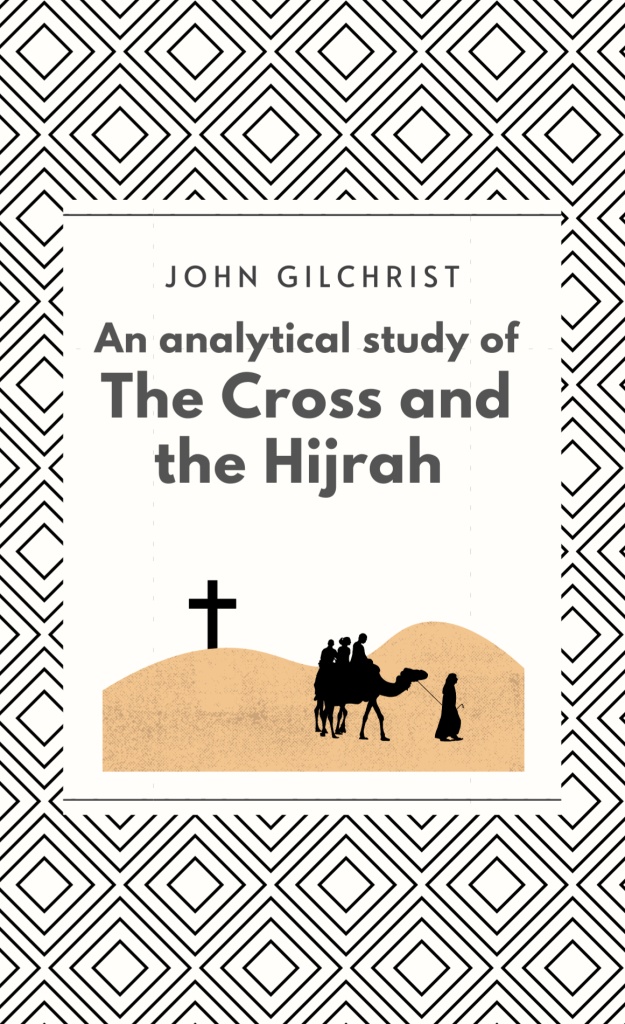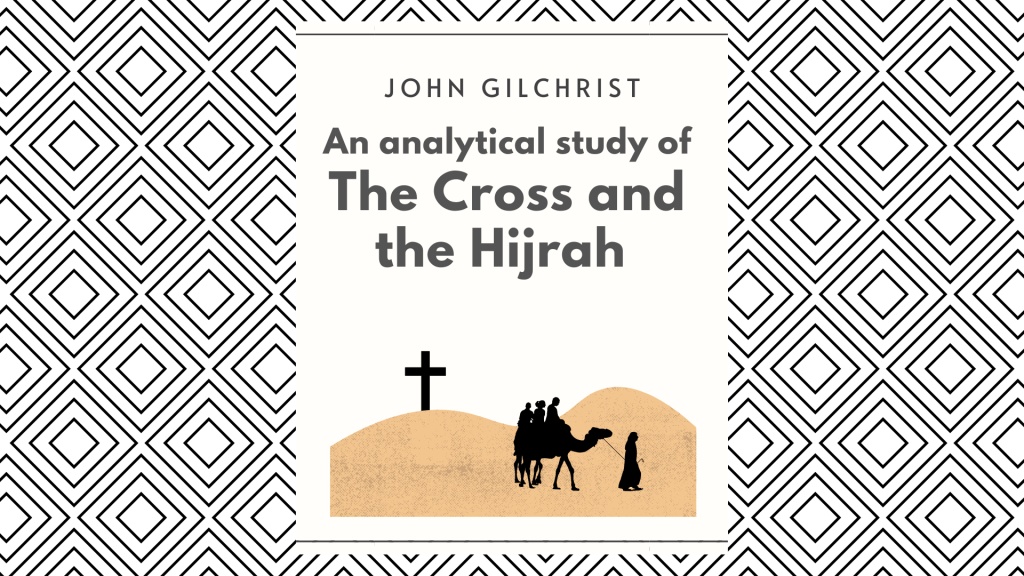The Ways of Escape Before both Men
An Analytical Study of the Cross and the Hijrah


Chapters
- Introduction
- The Similarities between Jerusalem and Mecca
- The Opposition to Jesus and Muhammad
- The Ways of Escape Before both Men
- Muhammad and the Ummah at Medina
- The Contrasting Path Chosen by Jesus Christ
- The Cross - the Choice of the Saviour of the World
- The End Result: the Glorious Kingdom of God
« Ch. 3 - The Opposition to Jesus and Muhammad
Just as opposition against Muhammad was coming to a head in Mecca, and not long after he had been rejected by the people at at-Ta'if to the south-east of the city, a welcome opportunity to escape the pending dangers and find an alternative haven came his way. The two major tribes in Yathrib. the Aus and the Khazraj, had for a long time fought with one another and, in an attempt to resolve their differences, they sought an independent leader. Men from both tribes made a pact with Muhammad during one of the fairs at Mecca and a year later a group of seventy returned and, at the Second Pledge of Aqabah, committed themselves to Muhammad, pledging to defend him even at the cost of their lives.
Not long afterward Muhammad left Mecca for Yathrib with a few score followers, later known as the muhajirun (the "emigrants"), and was duly met by each of the ansar (the "helpers") who had covenanted with him at Aqabah. Muhammad made the city his home and headquarters, renamed it al-Madinah ("the city"), and set about establishing himself among the people to the north of Mecca who had offered him a suitable haven of refuge and a way of escape from the growing dangers he had faced. The great Hijrah, the Emigration, was complete.
The parallels between the crises that both Jesus and Muhammad met continue at this point as well. As soon as Jesus knew that the chief priests were planning to put him to death, he no longer went about openly among the Jews until the Feast of the Passover when he returned again to Jerusalem (John 11:54: 12:1). He came into the city seated on a donkey, fully aware of the schemes being laid against him. He had been rejected and despised by the priestly hierarchy in Jerusalem and knew that he faced all sorts of dangers from the Jews in the city. Suddenly a way of escape opened to him, uncannily similar to the one presented to Muhammad. Shortly after he had entered the city a delegation of Greeks came to Philip, one of Jesus' disciples, and they said to him, "Sir, we wish to see Jesus" (John 12:21). Philip and Andrew duly went and told Jesus.
Jesus must have felt the same sense of potential relief that Muhammad was later to feel in similar circumstances. He could go away from the Jews and make his home among the Greeks - a possibility considered sometime earlier by the Jews themselves in Jerusalem (John 7:35). At his moment of destiny and crisis Jesus too discovered an inviting prospect of escape. Thusfar the analogy between him and Muhammad goes, but no further. When he heard that the Greeks wanted to see him he replied to his disciples:
"The hour has come for the Son of man to be glorified. Truly, truly, I say to you, unless a grain of wheat falls into the earth and dies, it remains alone; but if it dies, it bears much fruit". -- John 12:23-24.
He had come into the world with an express purpose and he knew that his hour of destiny had arrived. The hour had come for him to fulfil his glorious mission and as he considered the request of the Greeks, he told a brief parable to illustrate his reason for rejecting the opportunity to escape. If a grain of wheat is left by itself on a shelf it will retain its own identity but will serve no purpose. If it is buried in the ground, it will lose its identity, but the plant that will grow from it will bear many new grains of wheat.
Jesus came into the world to save it. He came to give his life as a supreme sacrifice that would give life and a new hope to the world (John 6:51). His purpose was to make the kingdom of heaven available to sinful, dying men. To achieve this he knew that he himself must die and be buried and that it would only be through this atoning work that the kingdom of heaven could truly be established on earth and many men become its heirs through faith in him.
The seed had to lose its identity and first be buried before it could bear much fruit. Jesus first had to suffer and die for the sins of men before his salvation could become available to Jews and Greeks and all the other nations of the world. He considered the way of escape offered to him but rejected it in these words:
"Now is my soul troubled. And what shall I say? 'Father, save me from this hour'? No, for this purpose I have come to this hour". -- John 12:27
Should he appeal to his Father to save him from his moment of destiny by finding a refuge among the Greeks? No - he rejected the idea. He had come for this hour. He solemnly turned down the opportunity to escape that Muhammad gratefully accepted. He set his face towards the cross that he knew was facing him and the work of salvation that he was to accomplish on it. Instead of appealing for help he boldly declared, "Father, glorify thy Name", and a voice came from heaven, "I have glorified it and I will glorify it again" (John 12:28).
The similarities between the course of events in the lives of Jesus and Muhammad come to an end at this point and from here on all is in contrast. Muhammad took a pledge from the Ansar to defend and save his life, even to the point of sacrificing their own lives. Jesus renewed his own pledge to lay down his life so that all his followers might find life instead. These contrary decisions in the moment of crisis and destiny were to lead these two men on totally different paths thereafter and their missions were to have sharply contrasting consequences.